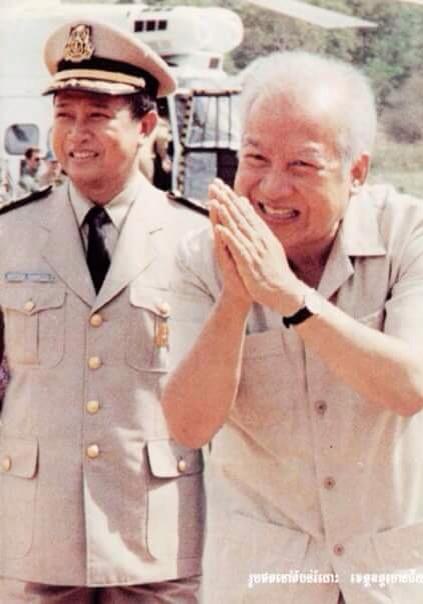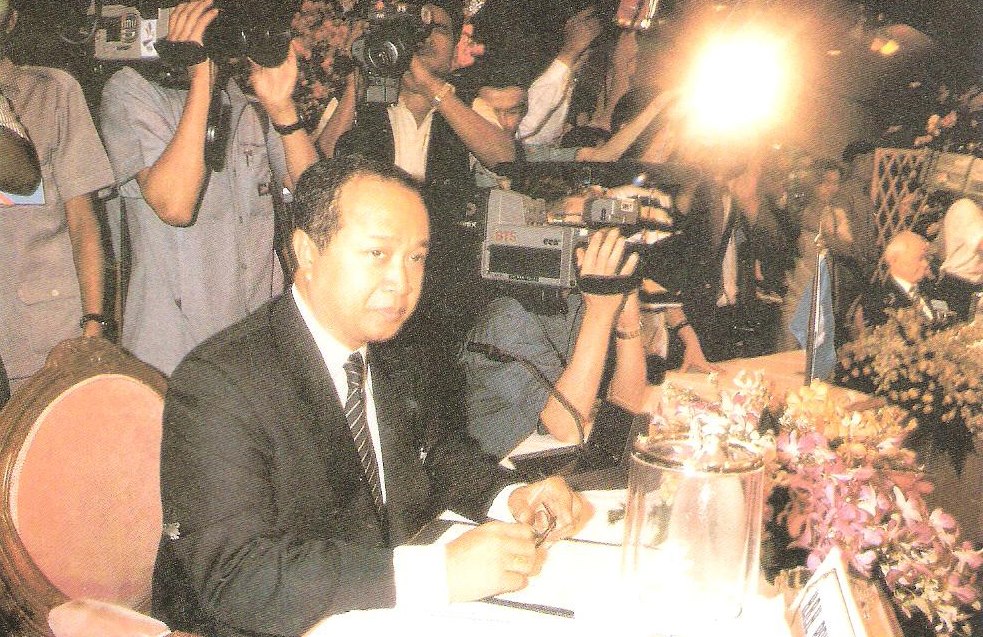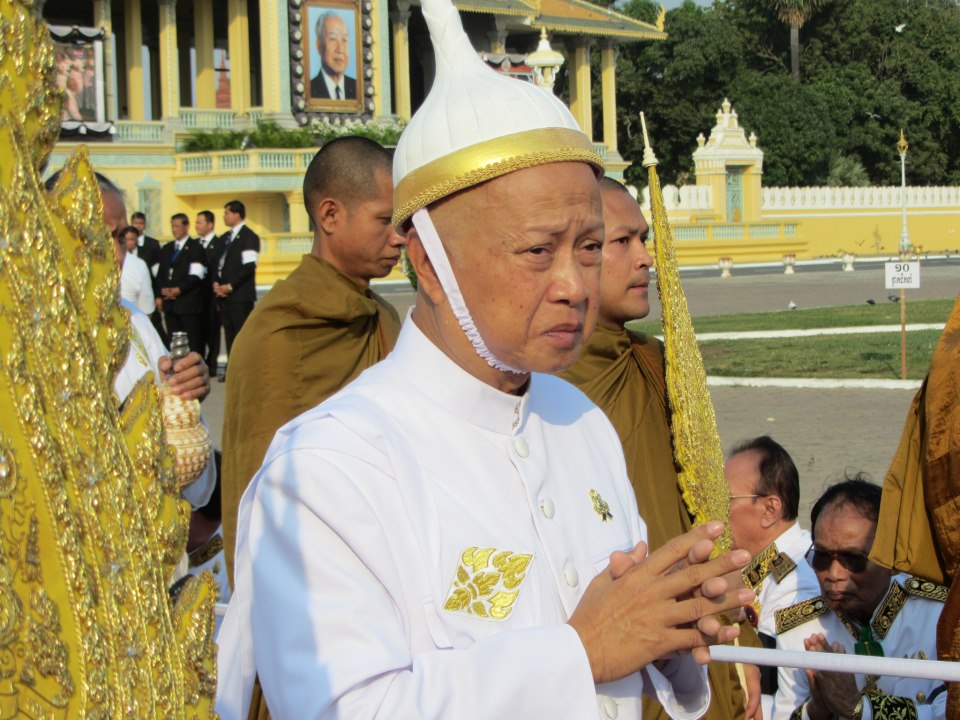Cambodia today commemorates the death of Norodom Ranariddh, second son of King Sihanouk, ex-premier of Cambodia, rebel leader and by far one of the most controversial and indeed interesting personalities to ever come out of Cambodia. After his father of course, whose shadow loomed over him up until his death.
Early life of Norodom Ranariddh
Ranariddh was born in Phnom Penh to Sihanouk and his first wife, Phat Kanhol, a ballet dancer attached to the royal court. He was largely estranged from her after she left at the age of 3 and was then brought up under the care of his aunt.
As a member of the nobility he was largely educated in France, ironically much like the Pol Pot clique, a group he was to be both allied to and against for large periods of his life.
In 1971 he was arrested along with other members of the Royal Family after the fall of the Sihanouk regime in the CIA backed coup by Lon Nol that formed the Khmer Republic.
He was eventually allowed to leave, from there he continued his studies during the time the royal court was allied with the Khmer Rouge, events which were to lead to the formation of Democratic Kampuchea.
Norodom Ranariddh and the Resistance

When Sihanouk formed FUNCINPEC in 1981 he asked his son to join the party, then already aligned with the Khmer Rouge under the Coalition Government of Democratic Kampuchea. It has been stated that he initially refused due to the coalition with Pol Pot, but in 1983 he finally agreed to his fathers terms.
He initially moved to Bangkok where he represented the party politically, before being appointed inspector-general of the ‘Armee Nationale Sihanoukiste’, the armed force of FUNCINPEC. In January 1986 he became ANS commander-in-chief and thus head of the royal military then fighting the Peoples Republic of Kampuchea, alongside the much more powerful Khmer Rouge.
Leader of FUNCINPEC
Things had changed rapidly by 1989, with the formation of the State of Cambodia and a nascent peace seemingly upon the country. Sihanouk senior stepped down as head of the party, leaving Norodom Ranariddh to take over the reigns of power.
On 10 September 1990, Ranariddh joined the Supreme National Council of Cambodia (SNC), the interim government led by his father until the elections of 1993.
Norodom Ranariddh and the 1993 Elections

The Khmer Rouge ended up boycotting the elections of 1993 thus leaving two main parties to fight it out, the rebranded Cambodian Peoples Party under Hun Sen and FUNCINPEC under Norodom Ranariddh.
The elections saw an enormous amount of violence and voter intimidation, but in the end Norodom Ranariddh’s party “won” the election. It was here though that things were to not only get rather strange, but would also split the Royal family three ways.
With FUNCINPEC due to take power Norodom Ranariddh’s brother Prince Norodom Chakrapong, who had since defected to the CPP declared the eastern provinces “independent”. This briefly led to Cambodia essentially being governed as three states, along with Cambodia “proper” and the last Khmer Rouge state.
This would eventually lead to King Sihanouk being reinstated and a power sharing agreement taking place whereby both Hun Sen and Norodom Ranariddh were both Prime-Ministers of the country.
Norodom Ranariddh and the 1997 Civil War
Whether the events of 1998 were a coup, or a civil war are still debated today, but both sides courted the still powerful Khmer Rouge and both sides ended up in armed confrontation after 4 years of bitter squabbling and power-grabs from both sides.
The net result though was the CPP consolidating power and Norodom Ranariddh initially being forced into exile. The CPP has been in power in Cambodia almost uncontested since.
Norodom Ranariddh’s Later Political Career

After eventually returning to the country, Norodom Ranariddh was to rejoin FUNCINPEC, as well be part of a number of new (but essentially very unsuccessful) parties, such as the not too subtly named Norodom Ranariddh Party. He was though in the end to rejoin a now virtually unrepresented FUNCINPEC and largely disappear from the political scene of Cambodia.
His death though was still to come as surprise to the nation, with December 8th being a ‘National Day of Mourning”, with the main “event” being that people in Phnom Penh are not allowed to drink. An ironic end to a year in which many Phnom Penhers have been not only under lockdown, but also an alcohol ban.
The ban though will be over in time for our January tour to Cambodia which you can read about here!





